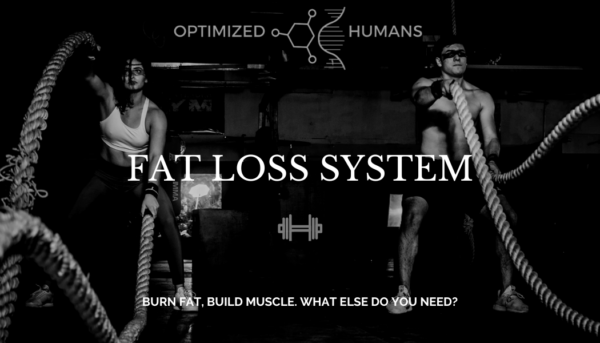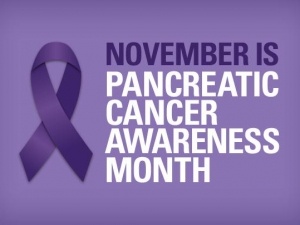
Set Goals
Introduction
As December winds down, it’s the perfect time to reflect on the past year and set goals for the year ahead. A fresh start in January begins with intentional planning in December. This blog explores how you can set achievable health goals and build a foundation for success with the Optimized Humans App.
Why Goal Setting Matters
Goals provide direction and motivation, especially during transitions. Whether your focus is weight loss, muscle gain, or improved mental well-being, starting with clear objectives ensures you stay consistent.
Steps to Set and Achieve Your Health Goals
- Reflect on 2024: Review what worked and what didn’t in your fitness and wellness journey.
- Set SMART Goals: Make your goals Specific, Measurable, Achievable, Relevant, and Time-bound.
- Create a Plan: Break down your goals into smaller, actionable steps.
- Track Progress: Use the Optimized Humans App to monitor workouts, meals, and progress.
Closing Thoughts
Your health goals are within reach when you approach them with clarity and the right tools. Let December be the springboard for an empowered and healthier 2025.
LETS GET FIT TOGETHER: Begin your journey to optimal health with Optimized Humans. Subscribe today and use code NEWYEARFIT25 for an exclusive discount!
Understanding Diabetes: The Importance of Awareness, Prevention, and Exercise
November is National Diabetes Awareness Month, a time to increase understanding about diabetes and encourage lifestyle changes that can help prevent and manage this chronic condition. Diabetes affects millions of people worldwide, but through education and proactive measures, you can lower your risk and lead a healthier, more active life. In this post, we’ll explore what diabetes is, how exercise plays a crucial role in prevention and management, some important statistics on diabetes and movement, and provide a 3-day workout plan to get you started on the right path.
What is Diabetes?
Diabetes is a chronic condition that affects how your body turns food into energy. When you eat, your body breaks down the food into sugar (glucose), which is then released into your bloodstream. In response, your pancreas produces insulin, which helps your body’s cells use that glucose for energy. In people with diabetes, either the body doesn’t make enough insulin or it can’t use insulin effectively, leading to high blood sugar levels.
There are three main types of diabetes:
- Type 1 Diabetes: An autoimmune condition where the body’s immune system attacks the cells in the pancreas that make insulin.
- Type 2 Diabetes: The most common form of diabetes, where the body becomes resistant to insulin, and the pancreas cannot make enough to compensate.
- Gestational Diabetes: Diabetes that occurs during pregnancy and usually resolves after giving birth, although it increases the mother’s risk of developing Type 2 diabetes later in life.
Managing diabetes is crucial to avoid complications such as heart disease, kidney failure, vision loss, and nerve damage. Fortunately, regular physical activity and a healthy lifestyle can help prevent Type 2 diabetes and improve the management of all forms of the condition.
How Exercise is Vital for Diabetes Management
Exercise is a key factor in preventing and managing diabetes. Physical activity helps regulate blood sugar levels, improves insulin sensitivity, and reduces the risk of developing Type 2 diabetes. For those already living with diabetes, exercise can help manage blood glucose levels and reduce the risk of complications.
Here’s why exercise is essential for diabetes:
- Improved Insulin Sensitivity: Regular exercise makes your muscles more sensitive to insulin, allowing your body to use blood sugar more effectively.
- Blood Sugar Control: Physical activity helps lower blood glucose levels and can keep them stable for hours after exercise.
- Weight Management: Being overweight is a major risk factor for Type 2 diabetes. Exercise helps burn calories, maintain a healthy weight, and reduce body fat, especially around the abdomen.
- Cardiovascular Health: Diabetes significantly increases the risk of heart disease. Exercise strengthens the heart, lowers blood pressure, and improves cholesterol levels.
- Mental Health Benefits: Managing a chronic condition like diabetes can be mentally challenging. Exercise releases endorphins that improve mood, reduce stress, and boost mental well-being.
Diabetes and Physical Activity: Eye-Opening Statistics
The rise of diabetes worldwide has been alarming, especially as lifestyles have become more sedentary. Here are some key statistics that highlight the need for increased movement:
- According to the International Diabetes Federation (IDF), approximately 537 million adults (ages 20-79) were living with diabetes in 2021, and this number is expected to rise to 643 million by 2030.
- Type 2 diabetes accounts for around 90-95% of all diabetes cases, and a sedentary lifestyle is one of the main contributing factors.
- The Centers for Disease Control and Prevention (CDC) reports that 1 in 3 adults in the U.S. have prediabetes, a condition where blood sugar levels are higher than normal but not yet high enough to be diagnosed as diabetes.
- Regular physical activity can reduce the risk of developing Type 2 diabetes by up to 58%, according to the Diabetes Prevention Program (DPP).
- Only about 22% of people with diabetes meet the recommended physical activity guidelines, despite the significant benefits it offers for blood sugar control and overall health.
It’s clear that incorporating regular physical activity into your lifestyle is one of the best ways to prevent and manage diabetes.
3-Day Workout Program for Diabetes Management
To help you get started on your fitness journey, here’s a simple 3-day workout program designed for people looking to manage or prevent diabetes. This program includes a mix of cardiovascular exercise, strength training, and flexibility work to improve overall health.
| Day | Exercise | Sets | Reps | Rest |
|---|---|---|---|---|
| Day 1: Cardio & Lower Body | ||||
| Brisk Walking or Cycling | 1 | 30 min | – | |
| Bodyweight Squats | 3 | 15 | 60 sec | |
| Step-Ups (with or without weights) | 3 | 12 per leg | 60 sec | |
| Calf Raises | 3 | 15 | 60 sec | |
| Hamstring Stretch | 3 | 30 sec | – | |
| Day 2: Upper Body Strength | ||||
| Push-ups (on knees if needed) | 3 | 10 | 60 sec | |
| Dumbbell Rows (or Resistance Bands) | 3 | 12 | 60 sec | |
| Shoulder Press | 3 | 12 | 60 sec | |
| Plank | 3 | 30 sec | 60 sec | |
| Chest Stretch | 3 | 30 sec | – | |
| Day 3: Full-Body & Core | ||||
| Jumping Jacks or Marching in Place | 3 | 1 min | 30 sec | |
| Lunges | 3 | 12 per leg | 60 sec | |
| Russian Twists | 3 | 15 per side | 30 sec | |
| Glute Bridges | 3 | 15 | 60 sec | |
| Child’s Pose Stretch | 3 | 30 sec | – |
This program is designed to be gentle yet effective for managing blood sugar levels and building strength. By combining cardiovascular activity with strength training and flexibility exercises, you’ll create a balanced routine that supports overall health and diabetes management.
Final Thoughts: Take Control of Your Health This Diabetes Awareness Month
Diabetes is a serious condition, but with the right lifestyle changes, it can be managed, and in many cases, prevented. By incorporating regular exercise, maintaining a healthy diet, and staying informed, you can reduce your risk of developing Type 2 diabetes and improve your overall well-being.
Let this Diabetes Awareness Month be a reminder to take charge of your health. Whether you’re looking to prevent diabetes, manage the condition, or simply live a healthier lifestyle, staying active is key to achieving your goals.
Ready to take your fitness journey to the next level? Join Optimized Humans today and gain access to personalized workout plans, nutritional guidance, and a supportive community to help you manage your health. Use the code MOVEMBERFIT for an exclusive discount on your subscription. Take control of your health and start optimizing your life today!
November Health Awareness Summary: Movember, Alzheimer’s, and Pancreatic Cancer
November is a pivotal month in health awareness, shedding light on several critical health concerns that affect millions around the globe. Movember, Alzheimer’s Disease Awareness Month, and World Pancreatic Cancer Month each offer a unique opportunity to raise awareness, promote prevention, and encourage early detection. Let’s take a closer look at each of these initiatives and how they inspire us to take charge of our health.
Movember: A Spotlight on Men’s Health
Movember is a global movement dedicated to men’s health issues, particularly prostate cancer, testicular cancer, and mental health. It encourages men to have open conversations about their health and to take proactive steps toward prevention. This includes regular screenings, maintaining physical activity, and focusing on mental well-being. Movember is also about taking action, whether by growing a mustache to start a conversation or participating in fitness challenges to improve overall health.
National Alzheimer’s Disease Awareness Month: Supporting Brain Health
Alzheimer’s Disease Awareness Month reminds us of the importance of protecting brain health as we age. With no cure for Alzheimer’s, prevention through lifestyle changes is more critical than ever. Regular physical activity, a healthy diet, social engagement, and mental stimulation are some of the best ways to reduce the risk of cognitive decline. The month also emphasizes the significance of early detection, as managing symptoms earlier can improve quality of life.
World Pancreatic Cancer Month: Raising Awareness for Early Detection
Pancreatic cancer is one of the deadliest forms of cancer, often diagnosed too late due to its lack of early symptoms. World Pancreatic Cancer Month focuses on educating the public about the risks, symptoms, and the importance of early detection. Raising awareness can lead to earlier diagnoses and better treatment outcomes. It also highlights lifestyle choices that can reduce cancer risk, such as a nutritious diet, regular exercise, and avoiding smoking.
Each of these awareness campaigns underscores the importance of living a healthy, proactive life. Whether focusing on physical fitness, brain health, or cancer prevention, November is a reminder to prioritize our well-being, seek early detection, and support research and awareness efforts for these critical health issues.

How to Cut Back on Alcohol: Techniques for Reducing Drinking and a Refreshing Mocktail Recipe
Cutting back on alcohol doesn’t have to be a daunting task. Whether you’re taking part in Sober October or just looking to reduce your drinking in general, there are several practical steps you can take to make the transition easier. Plus, we’ll share a refreshing mocktail recipe to help you enjoy social gatherings without the alcohol!
Techniques for Reducing Alcohol Consumption
- Set Clear Goals: Decide how many drinks you want to cut down to per week or aim for a completely alcohol-free period like Sober October. Having a clear goal helps you stay focused.
- Identify Your Triggers: Pay attention to the times and situations where you’re most likely to drink. Is it stress, boredom, or social pressure? Identifying triggers helps you find alternative coping mechanisms.
- Choose Alcohol-Free Days: Start by picking specific days where you won’t drink at all. Gradually increase these days as you get more comfortable without alcohol.
- Find Alternatives: Swap alcoholic drinks for refreshing mocktails, sparkling water, or herbal teas when you’re out with friends or unwinding at home.
- Get Support: Share your goals with friends or join a community like Optimized Humans, where you’ll find support for living a healthier lifestyle.
Refreshing Mocktail Recipe: Cucumber Mint Cooler
Ingredients:
- 1 cucumber, sliced
- 1 handful fresh mint leaves
- 1 tbsp lime juice
- 1 tsp honey (optional)
- Sparkling water or club soda
- Ice cubes
Instructions:
- In a glass, muddle cucumber slices and mint leaves to release their flavors.
- Add lime juice and honey (if using).
- Fill the glass with ice and top with sparkling water or club soda.
- Stir gently and garnish with extra mint leaves or a cucumber slice.
This mocktail is refreshing, hydrating, and perfect for hot days or social gatherings. It gives you the feel of a cocktail without any of the alcohol.
Final Thoughts: Embrace a Healthier Lifestyle This Sober October
Sober October is an excellent opportunity to rethink your relationship with alcohol and take steps toward a healthier, more balanced lifestyle. By understanding the effects of alcohol on your body and mind, exploring alternatives, and reducing your intake, you’ll start to notice improvements in your physical and mental well-being.
Looking to further optimize your health? Sign up for the Optimized Humans app today! Our personalized training and nutrition plans are designed to help you reach your full potential. Plus, for a limited time, get a special discount when you mention this blog post. Start your journey toward better health with Optimized Humans—where wellness meets performance!

 How Alcohol Impacts Your Mental and Physical Performance
How Alcohol Impacts Your Mental and Physical Performance
Alcohol isn’t just a social indulgence; it’s a substance that can significantly affect both your mental and physical performance. Whether you’re an athlete trying to stay at peak fitness or simply aiming to stay sharp at work, understanding how alcohol impairs your abilities is essential.
The Effects on Mental Performance
Alcohol has a direct impact on the brain, altering how it functions on multiple levels:
- Impaired Cognitive Functions: Alcohol reduces your ability to concentrate, process information, and make decisions. Even moderate drinking can slow your reaction times and impair short-term memory.
- Increased Stress and Anxiety: While alcohol might temporarily reduce feelings of stress, it can cause increased anxiety and stress in the long run due to its effects on neurotransmitter balance.
- Decreased Productivity: Drinking the night before work can lead to brain fog, lack of motivation, and decreased productivity, making it harder to stay focused and accomplish tasks efficiently.
The Effects on Physical Performance
Alcohol’s impact on your body is just as detrimental:
- Slower Recovery Time: Alcohol interferes with your body’s ability to recover from workouts. It dehydrates muscles, hampers protein synthesis, and reduces your energy levels, all of which can delay recovery after exercise.
- Decreased Strength and Endurance: Drinking reduces muscle coordination and decreases your physical performance by impairing your motor skills and weakening your stamina. This makes it harder to maintain peak fitness levels.
- Disrupted Sleep: Alcohol can significantly disrupt sleep patterns, leading to poor-quality rest. Since sleep is essential for physical recovery and overall health, this can have lasting negative effects on your performance.
By reducing or eliminating alcohol from your lifestyle, you can see marked improvements in your mental clarity, physical strength, and overall well-being.
Ready to take your health to the next level? With Optimized Humans, you can access personalized workout and nutrition plans, support for your wellness goals, and a community to keep you motivated. Sign up today and receive a special discount on your membership by mentioning this blog! Start your Sober October challenge with us, and take the first step towards a fitter, healthier, and more optimized you.

What is Sober October? Origins, Health Benefits, and Why You Should Join In
Sober October is an annual movement encouraging people to take a break from alcohol for 31 days during the month of October. This wellness challenge offers a chance to reset your body, mind, and habits, providing a break from alcohol’s effects and allowing for a clearer perspective on your relationship with drinking. But where did this movement come from, and what are the benefits of participating?
Origins of Sober October
Sober October originated in the UK in 2014, led by the charity Macmillan Cancer Support. Initially, it was a fundraising campaign encouraging participants to give up alcohol for a month to raise money for cancer research. It quickly gained popularity beyond its charitable origins, as people realized the personal benefits of abstaining from alcohol for a period, including improved physical and mental health.
The Health Benefits of Sober October
Taking a break from alcohol, even for a short time, can have remarkable effects on your body and mind. Here are a few benefits you can expect from participating in Sober October:
- Improved Sleep: Alcohol can disrupt sleep patterns, causing you to wake up feeling groggy. Going alcohol-free allows your body to restore its natural sleep cycle, leading to more restful nights.
- Better Skin: Alcohol dehydrates your body, and your skin often shows the effects. Without alcohol, many people notice a clearer, more hydrated complexion.
- Boosted Mental Clarity: Alcohol can fog your thinking and slow your cognitive functions. When you cut it out, you may find it easier to focus, think clearly, and be more productive.
- Weight Management: Alcohol is often high in empty calories. By cutting it out, you may experience weight loss or better control over your calorie intake.
- Enhanced Mood: Alcohol can act as a depressant, lowering your mood over time. People often report feeling more emotionally stable and positive during and after a month without drinking.
Participating in Sober October offers a valuable opportunity to reassess your habits and make positive changes in your life, setting the stage for long-term health and wellness.
Ready to take your health to the next level? With Optimized Humans, you can access personalized workout and nutrition plans, support for your wellness goals, and a community to keep you motivated. Sign up today and receive a special discount on your membership by mentioning this blog! Start your Sober October challenge with us, and take the first step towards a fitter, healthier, and more optimized you.

Hello Optimized Humans! My name is Sydney Brisbane your Optimal Wellness Specialist and I have dedicated most of my life to helping people like you maximize their human potential through personalised workouts, meal plans, and curated schedules to hit their lifestyle goals. I do this via my app, it offers a comprehensive range of features to help you achieve your wellness goals. Whether you’re looking to improve your fitness, nutrition, or overall well-being, this user’s guide will provide you with a detailed walkthrough on how to maximize the value of your Optimized Humans subscription.
Getting Started
- Contact Me
-
- Send me an email sydney@optimizedhumans.life requesting a discovery call.
- Message me on any social media platform with your name, phone number, or email address.
- I will send you a unique link dedicated to your profile
- Last you can download the app on either store IOS or Android. Then send me a email or direct message, so I can build and link your profile.
- Download and Install the App:
- Available on both iOS and Android platforms, download the Optimized Humans app from the App Store or Google Play.
- Open the app and sign up using your email address or social media account.
- Profile Setup:
- Complete your profile by entering your personal information, fitness goals, and current fitness level. This will help the app tailor its recommendations to your specific needs.
- Complete your waivers and questionnaire so that I can create the best workout for you experience level and needs.
- Set your preferences for workout types, dietary restrictions, and any other relevant details.
Navigating the Dashboard
The dashboard is your home screen, providing a quick overview of your daily activities, progress, and personalized recommendations.
- Daily Summary:
- View a snapshot of your daily stats, including steps taken, calories burned, and active minutes.
- Access your workout schedule and meal plan for the day.
- Progress Tracking:
- Track your fitness progress over time with charts and graphs. Monitor your weight, body measurements, hear rate, calorie intake, calorie expenditure, and performance improvements.
Personalized Workout Plans
One of the standout features of the Optimized Humans app is its ability to create personalized workout plans tailored to your goals and fitness level.
- Setting Up Your Workout Plan:
- Depending on which program you to choose to be a part of, I will either create a personalised program for you, or you can create your own in our On-Demand Library.
- If you choose to create your own, follow the next steps below:
- Go to the “Workouts” section and select “Create a New Plan.”
- Choose your fitness goal (e.g., weight loss, muscle gain, endurance) and specify your preferred workout types (e.g., cardio, strength training, yoga).
- Set your workout frequency and duration.
- Accessing Your Workouts:
- Your personalized workout plan will be displayed in the “Workouts” section.
- Follow along with detailed video tutorials and step-by-step instructions for each exercise.
- Log your workouts to track your progress and receive feedback.
- Outdoor and Home Workouts:
- Explore a variety of workouts that can be performed outdoors or at home with minimal equipment.
- Use the GPS tracking feature for outdoor runs, walks, and cycling routes.
Nutrition and Meal Planning
Optimize your diet with personalized meal plans and nutrition tracking.
- Setting Up Your Meal Plan:
- Option 1: Just as the same as your workout plan, we will create you a “Smart Meal Plan” with our food library.
- You will give us all the nutritional information that you are interested in or any allergies you may have and we will create a “Smart Meal Plan” dedicated to fit your needs.
- You will receive a customized meal plan with breakfast, lunch, dinner, and snack options.
- If you do not like a meal you can swap it out for another meal at anytime.
- Option 2: In the “Nutrition” section, select “Create a Meal Plan.”
- Enter your dietary preferences, restrictions, and goals (e.g., calorie intake, macronutrient distribution).
- Receive a customized meal plan with breakfast, lunch, dinner, and snack options.
- Option 1: Just as the same as your workout plan, we will create you a “Smart Meal Plan” with our food library.
- Accessing Recipes:
- Browse a vast library of healthy recipes tailored to your dietary needs.
- Save your favorite recipes and add ingredients to your shopping list.
- Tracking Your Nutrition:
- Log your meals and snacks to monitor your calorie and nutrient intake.
- Use the barcode scanner to quickly add packaged foods to your diary.
- We advise that you use myfitnesspal to track your calories.
Recovery and Wellness
Recovery is a crucial part of any fitness journey. The app offers features to help you rest, recover, and maintain overall wellness.
- Guided Stretching and Yoga:
- Access guided stretching routines and yoga sessions designed to improve flexibility and promote relaxation.
- Follow along with video instructions to ensure proper form and technique.
- Sleep Tracking:
- Track your sleep patterns to ensure you’re getting adequate rest.
- Set sleep goals and receive tips for improving sleep quality.
- Be sure to link your tracking device to the app.
- Mindfulness and Meditation:
- Explore guided meditation sessions to reduce stress and improve mental clarity.
- Practice mindfulness exercises to enhance your overall well-being.
Community and Challenges
Stay motivated by connecting with other users and participating in challenges.
- Joining the Community:
- Access the “Community” section to connect with other Optimized Humans users.
- Share your progress, post updates, and find workout buddies.
- Participating in Challenges:
- Join community challenges to stay motivated and compete with other users.
- Track your performance in real-time and earn badges and rewards.
Support and Resources
If you need assistance or want to learn more, the app provides comprehensive support and resources.
- Help Center:
- Please feel free to reach out to me or your coach with any questions first.
- Access the Help Center for FAQs, tutorials, and troubleshooting guides.
- Contact customer support for personalized assistance.
- Educational Resources:
- Browse articles, videos, and expert tips on fitness, nutrition, and wellness.
- Stay informed with the latest health trends and research.
Conclusion
The Optimized Humans app is a powerful tool designed to support your health and fitness journey. By leveraging its personalized workout plans, nutrition tracking, recovery features, and community support, you can achieve your wellness goals more effectively. Follow this guide to get the most out of your subscription and embrace a healthier, more optimized lifestyle. Download the Optimized Humans app today and start your journey towards a better you!
Exclusive OFFER! FREE 14 DAY TRIAL!
CLICK LINK BELOW
https://www.trainerize.me/profile/siiib/?planGUID=28a1d9e4193241a59dd3afaa62b54837

As we peer into the not-so-distant future, the concept of fitness in the metaverse emerges as a fascinating, albeit perplexing, phenomenon. Are virtual and augmented reality (VR and AR) workouts truly the next frontier of fitness, or is this just another passing trend? The assertions about their growth in popularity in 2024 beg the question: can these immersive experiences genuinely redefine the way we approach exercise?
Immersive Fitness: A Game-Changer or a Gimmick?
The promise of a unique and immersive fitness experience is undoubtedly intriguing. The thought of donning VR headsets or engaging in AR-enhanced workouts brings a sense of novelty to the fitness realm. But, one might wonder, does the immersion translate to efficacy? Can these experiences genuinely rival the tangible benefits of traditional workouts, or are they more of a gimmick that appeals to our collective fascination with cutting-edge technology?
Accessibility for All: A True Game-Changer?
The assertion that VR and AR workouts can be accessible for people with disabilities or mobility issues raises essential questions about inclusivity in the fitness landscape. While the idea of breaking down physical barriers is commendable, one might ponder: do these technologies truly cater to the diverse needs of individuals with varying abilities? How seamless is the integration, and does it genuinely provide an inclusive fitness experience for everyone?
The Future: A Technological Triumph or Ethereal Experiment?
2024 is painted as the year when VR and AR workouts will thrive. Yet, we can’t help but question the long-term implications. Is this a lasting shift in the fitness paradigm, or are we witnessing an ethereal experiment that will fade away as swiftly as it appeared? Can virtual fitness truly replace the tangible connections forged in physical spaces like gyms and studios, or is it a supplement rather than a substitution?
In the metaverse, where the lines between reality and virtuality blur, the future of fitness appears to be both thrilling and enigmatic. As we navigate this uncharted territory, let’s question, explore, and critically assess whether the immersive promise of VR and AR workouts is a transformative leap into a new era of fitness or a fleeting mirage in the evolving landscape of wellness. Is this the dawn of a revolutionary fitness experience, or are we merely playing a captivating game within the metaverse? Only time will reveal the answers, and until then, let the questioning continue.

As we stride into the future, one trend that’s not just making waves but becoming an integral part of our daily lives is wearable technology. The popularity of fitness trackers and smartwatches is set to soar even higher in 2024, becoming indispensable tools for those keen on optimizing their well-being.
Smart Fitness Tracking
Wearable technology serves as a personalized wellness companion, allowing individuals to effortlessly monitor their fitness journey. From step counts to heart rate monitoring, these devices offer real-time insights into physical activity, empowering users to make informed decisions about their health.
Motivation at Your Fingertips
What sets wearable tech apart is its ability to keep users motivated. Whether it’s reaching daily step goals, beating a personal best, or receiving real-time workout feedback, these devices provide the encouragement needed to stay on track and achieve fitness milestones.
Healthy Habits, Intelligent Living
Beyond mere fitness tracking, wearable technology champions a lifestyle of intelligent living and healthy choices. These devices have evolved to encompass a holistic approach to well-being, seamlessly integrating into our daily routines and promoting healthier decisions.
Optimized Humans Fitness App Integration
In this era of tech-driven wellness, the Optimized Humans Fitness App takes the concept of intelligent living a step further. Seamlessly syncing with popular wearable devices, the app harnesses the power of fitness tracking technology to provide users with a comprehensive overview of their well-being journey. Real-time data from wearables seamlessly integrates into personalized workout plans, enabling users to set and achieve fitness goals with precision.
From step counts recorded by your favorite fitness tracker to heart rate data from your smartwatch, the Optimized Humans Fitness App transforms raw metrics into actionable insights. It’s not just a fitness app; it’s a digital wellness companion that applies the latest in wearable technology to empower users on their journey to optimal health. Embrace intelligent living and a tech-infused wellness experience with the Optimized Humans Fitness App—where the power of wearables converges with personalized fitness for a holistic approach to well-being.





